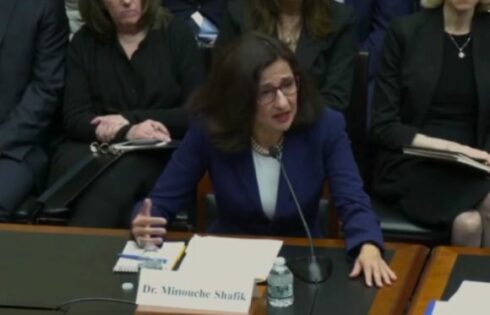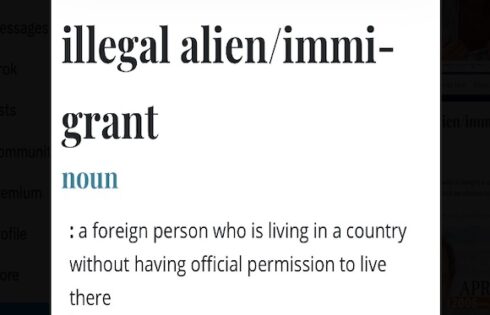
The Supreme Court seemingly put a hold on lower courts deciding whether the Obama administration’s transgender-bathroom directive on public schools is an overreach, yet judges keep on grappling with the issue.
On the same day last week, two judges in two federal courts gave conflicting rulings on the directive, though one of those rulings must be reviewed by a higher judge in the court and its factual situation may render it an outlier.
The Texas judge that said the Obama administration violated the Administrative Procedure Act when it issued the directive this spring has issued a clarifying ruling that, yes, his August injunction against enforcement is nationwide:
Plaintiffs argue that “Defendants are federal administrators and agencies, with footings in every state and territory” and they are “collectively and systematically engaged in enforcing a pervasive and unlawful rule across the country . . . .” … The Court agrees that the scope of this injunction should be and is nationwide.
MORE: Supreme Court halts enforcement of bathroom mandate
Judge Reed O’Connor cites the Supreme Court’s recent affirmation of the 5th U.S. Circuit Court of Appeals, which governs O’Connor’s court, which itself was affirming another Texas judge who blocked the administration’s Deferred Action for Childhood Arrivals immigration policy:
It is clear from Supreme Court and Fifth Circuit precedent that this Court has the power to issue a nationwide injunction where appropriate. Both Title IX and Title VII rely on the consistent, uniform application of national standards in education and workplace policy. A nationwide injunction is necessary because the alleged violation extends nationwide.
O’Connor also said his ruling did nothing to limit the “core missions” of the Equal Employment Opportunity Commission, as the government feared: “Defendants are simply prevented from using the Guidelines to argue that the definition of ‘sex’ as it relates to intimate facilities includes gender identity.”
MORE: Transgender bathroom mandate violated rulemaking rules, invented ambiguity
Meanwhile, a magistrate judge in Illinois refused to issue an injunction against a school district that has allowed transgender students to use the restrooms of their choice for three years.
The “report and recommendations” by Judge Jeffrey Gilbert, which now goes to District Judge Jorge Alonso for review, says that “the meaning of the term ‘sex’ as used in Title IX may be in flux” in the 7th Circuit, which governs his court:
Just last week, the Seventh Circuit vacated a decision by a panel of that court that adhered to a longstanding interpretation of the word “sex” in the almost identically worded Title VII of the Civil Rights Act of 1964 … as very narrow, traditional and biological. Plaintiffs relied heavily on the now vacated panel decision.
MORE: Dozens of families sue the feds for letting boy in girls’ locker room
Students and Parents for Privacy, a group formed by dozens of Chicago-area families to fight their school district’s transgender-bathroom policy, does not have a “likelihood of success on the merits of their claim” that the gender-identity interpretation of Title IX is not “entitled to deference” by the courts, Gilbert wrote:
High school students do not have a constitutional right not to share restrooms or locker rooms with transgender students whose sex assigned at birth is different than theirs. In addition, sharing a restroom or locker room with a transgender student does not create a severe, pervasive, or objectively offensive hostile environment under Title IX given the privacy protections District 211 has put in place in those facilities and the alternative facilities available to students who do not want to share a restroom or locker room with a transgender student.
As noted by The Washington Post, Gilbert asked why students and parents need injunctive relief now:
After District 211 instituted the Restroom Policy, roughly three years elapsed before Plaintiffs challenged it. If Student Plaintiffs did not know they were using restrooms with transgender students during this three-year period, it is hard to say this is a conscience shocking policy. Alternatively, if some Student Plaintiffs were aware transgender students were using restrooms consistent with their gender identity during that time and did not complain about it, then it also is hard to say that state of affairs shocks the conscience.
MORE: Virginia school district shuts parents out of transgender policy discussion
Gilbert said the accommodations given to both the transgender girl (biological male) and the girls who shared the locker room – “private changing stations” for the former, and “access to a reasonable alternative” for the latter – showed “a careful and sensitive balancing of the interests of all the students in District 211.”
The Alliance Defending Freedom, which is involved in the Illinois case, blasted Gilbert’s ruling as threatening “the dignity and privacy rights” of the girls and said the magistrate judge was enabling the feds to redefine the law and violate “the privacy of thousands of students.”
Read the Texas and Illinois rulings.
MORE: School policy that punishes students who offend transgenders is under court review
MORE: Biological male awarded girls all-state track honors
Like The College Fix on Facebook / Follow us on Twitter
IMAGE: Porky’s screenshot




Please join the conversation about our stories on Facebook, Twitter, Instagram, Reddit, MeWe, Rumble, Gab, Minds and Gettr.